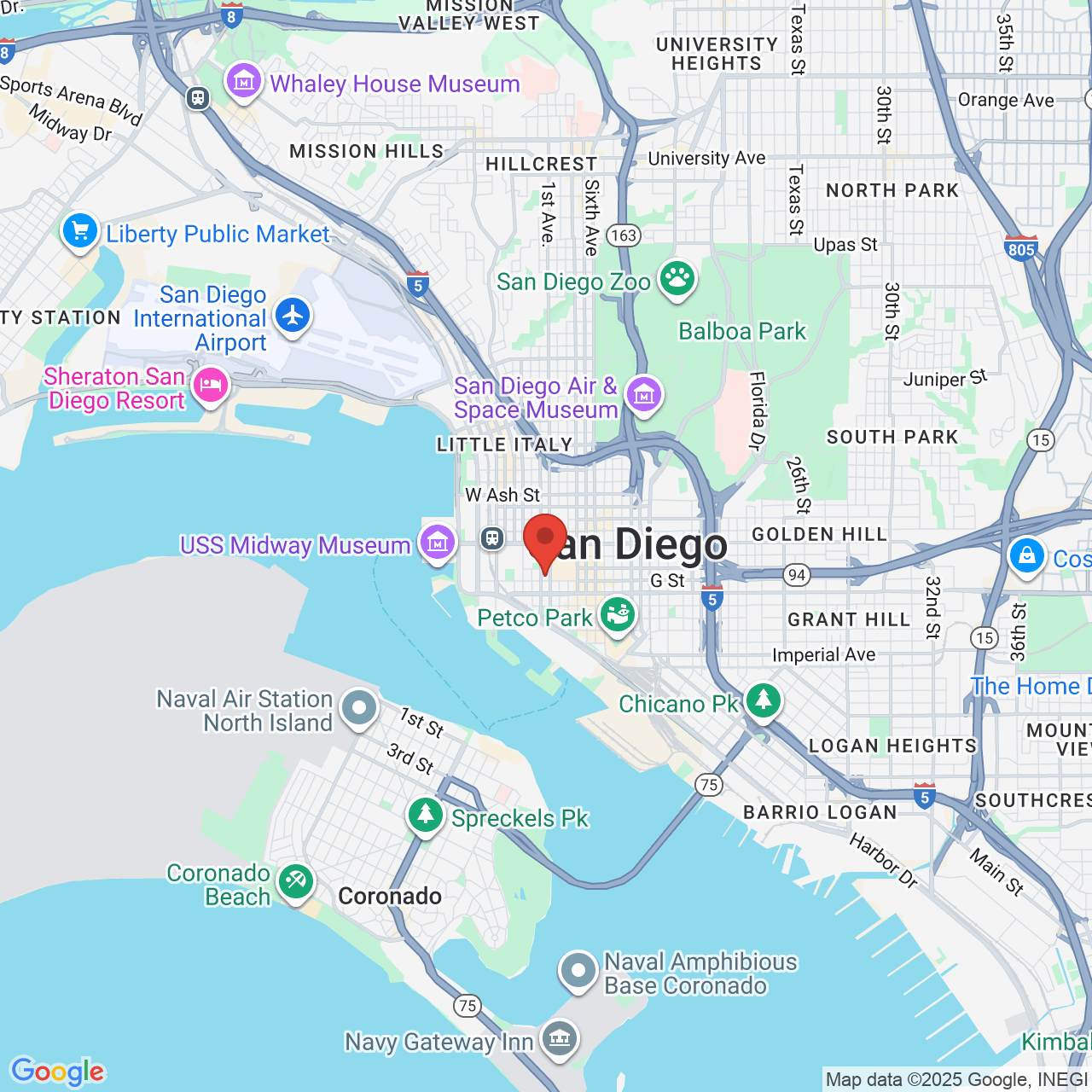Trade Secret Attorney
Do you suspect a trade secret belonging to your business has been misappropriated? Is a current or former employer accusing you of trade secret misappropriation?
Trade secrets can make or break businesses both large and small, making it crucial to hire counsel who can protect your rights.
Hoge Law Firm in San Diego, CA, can connect you with a trade secret attorney with a track record of success in business litigation.

Speak to a Lawyer Today
It's Never Too Soon to Start Protecting Your Best Interests
You likely have only three years to file suit if you believe confidential information belonging to your company has been disclosed through unlawful means.
Meanwhile, if you have been accused of trade secret misappropriation, you can be sure that the other party is taking steps to collect maximum restitution. Now is the time to consult a business lawyer capable of protecting your best interests throughout potentially complex litigation.
Charlie Hoge is a trial lawyer who has litigated on behalf of clients including businesses and individuals for more than 30 years. When you reach out to his San Diego law office, you will be placed in touch with a lawyer who can help you determine the best way to protect your future. Send us a message or call today:

You likely have only three years to file suit if you believe confidential information belonging to your company has been disclosed through unlawful means.
Does My Company Have a Case?
When it comes to getting a reliable answer to this question, there is no substitute for consulting an attorney. But to gain a basic understanding of what these cases must prove, you need to first understand what constitutes a trade secret and misappropriation:
Trade Secret Criteria
In order for intellectual property (IP) to be considered a trade secret, it must be:
- Valuable to your business because it is a secret
- Known only to limited parties
- Subject to reasonable measures to keep it a secret, such as contractual agreements
What Is Considered Trade Secret Misappropriation?
Trade secret misappropriation can refer to:
- Breach of a nondisclosure agreement. This transcends simply communicating trade secrets to parties other than those who are authorized in the NDA. These contracts sometimes specify that parties can only view trade secrets on company computers; if someone views them on an unsecured private computer using an unsecured network, this could be considered a breach of contract.
- Theft. Hacking into a company's databases—that is, unlawfully breaking through security measures—to acquire trade secrets is just one example of how trade secrets can be stolen.
- Publishing. For example, if a party becomes privy to a trade secret that they know was unlawfully obtained, and they publish the secret on a blog, that party could be held liable for trade secret misappropriation.
Hoge Law Firm in San Diego can help you assert your rights through litigation.
Trade Secrets vs. Other Kinds of
Intellectual Property

Trademarks, Copyrights,
and Patents
These three types of intellectual property stand apart from trade secrets primarily because they aren't secrets. Patents are public records that anyone can access. If you want to see exactly how an iPhone is built, the information is available, but using the patent to build your own would be unlawful. The iconic Nike swoosh is everywhere, and not hard to replicate; but if you do so to make money, Nike would likely have grounds for legal action against you. If you take a photo and post it to Instagram, and another party uses it to make money, you may have grounds for legal action under copyright law.

Trade Secrets
Like a copyright, a trade secret doesn't require any formal registration. Unlike a copyright or other types of IP, a trade secret is valuable because it is a secret. Common examples of trade secrets include formulas, recipes, marketing strategies, research data, lists of clients, and software algorithms. The State of California and the Uniform Trade Secrets Act provide trade secret protection, and if it can be proven that a trade secret was misappropriated, a company may have grounds for a lawsuit. One of the most famous examples of a trade secret is the recipe for Coca-Cola. Patenting that recipe would generally only give Coca-Cola the monopoly over it for 20 years. But as a trade secret, it remains theirs as long as confidentiality is maintained.
Trade secret theft can be considered a felony in California as well as in federal court. Hoge Law Firm in San Diego is ready to place you in touch with an attorney who can determine whether you should initiate litigation in state or federal court.
Trade Secret Litigation Defense
Independent Development
This is often the most powerful defense against a misappropriation claim. Successful defense litigation requires demonstrating that an employee used their own pool of knowledge (or knowledge in the public domain) on their own time—not the company's time—to develop intellectual property.
Reverse Engineering
The act of reverse engineering (discovering a trade secret through your own analysis of a process or product) is not considered misappropriation in California. In other words, if you discover the recipe for KFC fried chicken through your own research in your kitchen, this is not considered illegal. Be aware that in some cases, the use of products such as software may require agreements that prohibit reverse engineering.
Inadequate Security Measures
Parties must take adequate measures to keep confidential information secure in order to qualify for trade secret protection. For example, a company's failure to require an NDA from customers who will have access to those secrets could be an effective defense against a misappropriation claim. Our San Diego firm can identify shortcomings in confidentiality efforts to protect the rights of our clients.
The Information Is Public
In some cases, it is possible to argue that the information wasn't a secret at all, and was already available in the public domain. It is important to understand that specific combinations of information in the public domain can be considered trade secrets.
Now is the time to consult a business lawyer capable of protecting your best interests throughout potentially complex litigation.

